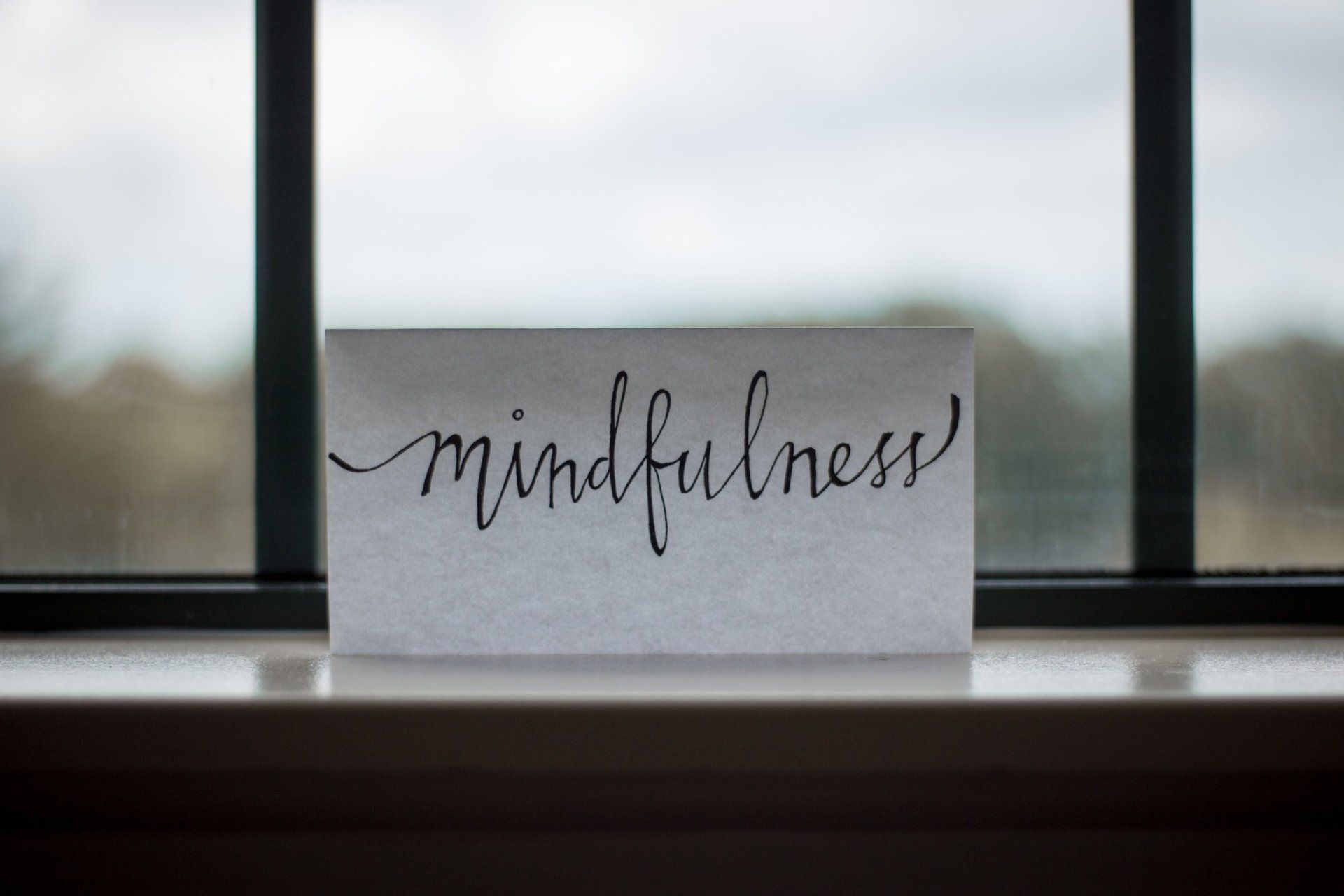Three Enticing Ways to Improve Communication and Intimacy
Barbara Markway, PhD • May 28, 2020
Ways to Improve Communication and Intimacy!

We all know that being a good listener goes a long way to increasing harmony and intimacy in a relationship. But what about the person doing the talking? Can he or she say whatever is on their mind and hope for the best? The simple answer is no. For a relationship to really shine, the speaker must share in the responsibility of making sure the conversation goes smoothly.
So how can you express yourself and your needs in a way that both honors the relationship and gives you the best chance of meeting your needs? By using what I call "the three laws of speaking." The word “law” may sound a bit strong, but if couples know what to expect when they communicate with their partner, they’re apt to feel safer, which is likely to foster closeness and intimacy.
Law of Speaking #1. You have a choice.
Probably one of the biggest myths perpetuated by pop psychology is the notion that it's healthy to "let all your feelings out." This idea came from Freud's "hydraulic model" of emotions. He wrote that unexpressed feelings can build up if not released, any eventually exert so much pressure on the dam that it breaks, flooding the entire system. Modern research has shown the flaws in this model, especially in regard to certain negative feelings. For example, results from numerous studies show that the cathartic expression of anger only leads to increased feelings of anger. My clinical work also supports this. I’ve observed over and over again that couples meet with disaster when they mistakenly assume that it's a good thing to share all their thoughts and feelings, whenever and however the mood strikes them.
To put this in more practical terms, you must remember that you have a choice. Simply because you experience a feeling doesn't mean you have to express it right then and there. Imagine, for example, that checking your credit card statement online, and you're angry about something your partner bought – you think it's an extravagant purchase, and wish you'd been consulted. Given that you're angry, here's a list of some of the choices you can make:
Whether or not you will express your feelings to your partner. Maybe you'll decide it's not really such a big deal after all.
When to express your feelings to your partner. Do you choose to say something at the very moment when your experience that feeling? Do you wait until you calm down? Do you find a time when your partner might be more receptive?
How you express your feelings to your partner. Do you yell, scream, whine, or pout? Do you calmly tell your partner how you feel? Are you direct? Or do you express your angry feelings passively, perhaps by doing something to retaliate or get even?
How you'll care for yourself and your relationship. Do you take steps to soothe yourself and calm yourself down? You don't have to tell your partner every feeling about every incident. You have other options: writing in a journal, exercising, reading something funny… Or do you go over in your mind all the past times your partner has done something that made you angry, adding fuel to the fire?
It might seem as if I’m asking you to be over-controlled in your expression of feelings, but I’m not. Certainly, being emotionally shutdown is not the way to create a healthy relationship. But the benefits of expressing your feelings must be balanced against the potential to do harm to the integrity of the relationship, and to your partner’s self-esteem. The key is when and how to express your feelings.
Law of Speaking #2: Assume responsibility for your thoughts and feelings.
In communicating with your partner, you must accept the fact that you alone are responsible for your feelings. No one can "make you mad" – you choose your reactions. Certainly, external factors can conspire to make it more likely that you'll feel one way or another. For example, if your spouse approaches you in a loud, argumentative tone, accusing you of something you didn't do, you're likely to feel somewhat self-righteous and defensive. It's up to you whether to act on these feelings or to change your thinking in such a way that other feelings can take their place. You might know that your spouse has been under a lot of pressure lately, and your empathy might allow you to react in a completely different, much more generous manner. Ultimately, we all create our own reality. Keeping this in mind, you can polish the rough edges of your statements by prefacing them with, "I think…" Or "I feel…" This alerts your partner to the fact that you're owning your thoughts and feelings: you're making it perfectly clear that you realize that your perceptions are subjective.
Law of Speaking #3: Speak with kindness and clarity.
It's helpful when you're talking with your partner about some negative feeling or some complaint to also include positive feelings you have. For example, if you're annoyed that your partner didn't do the dishes as he promised, you could begin your conversation noting how much you appreciate the time he spends with the children in the evening. You might also say, "I know you've been working hard all day, but I really need your help with the dishes tonight." Also, show your partner you're aware of the impact your statements may have. You might start out by saying, "I know it's hard for you when I say things that sound critical…" Remember, your partner is your friend, lover, and companion: your goal is not only to communicate your feelings fully, but also as graciously as possible. In addition, speak with as much clarity as you can muster. By clarity I mean: stay in the present (don't dredge up old dirt) and stick with the salient points. No matter what the content, aim for self-expression to be an opportunity to strengthen the core feelings of love and affection that originally drew you together.
Summary of key points:
State your views as your own thoughts and feelings, acknowledging your subjectivity. Begin your statements with "I think…" Or "I feel…" rather than "you never…" Or "you always…"
When expressing negative emotions or criticisms, also include any positive feelings you have about your partner or the situation.
Make your statements as specific as possible.
While expressing yourself, demonstrate your respect for your partner by showing that you are aware of the impact that your statements may have. Show that you care about your partner’s feelings.
Stick to one subject at a time whenever possible.
By following these guidelines, you'll learn to express yourself in a manner that not only shows respect for your partner, but also help you present your own needs and wishes in a way that makes your partner more willing to help and brings you closer together.
Click here for more on the author: https://www.psychologytoday.com/us/blog/living-the-questions/201606/three-enticing-ways-improve-communication-and-intimacy

Mindfulness encompasses a variety of definitions although most are similar in concepts. Mindfulness is described as an awareness that arises from purposely paying attention in the present free from any judgements. Mindfulness is a state of awareness of ones emotions, thoughts, and sensations when each occurs. A third definition of mindfulness is a nonjudgmental state of awareness of present experiences. Various interpretations exist dependent on the context in which mindfulness is being examined. For example, mindfulness can be examined in improving emotional regulation and as a coping tool for stress management. Mindfulness is being in the present moment in ones body in a fully conscious state, aware of ones own experiences without judgement or narrative- just being in the moment in the here and now with an acceptance of how things are; being aware of our own thoughts, emotions, sensations without being caught up in them- an outside observer of self with an awareness of the moment. Mindfulness can be used throughout the day when walking, eating, and whenever feeling emotionally “charged” to step back and observe internal experiences. Yoga, meditation, and breathing are a few ways to cultivate mindfulness. Being mindful allows for intentional actions and responses rather than living on autopilot without being aware. The benefits of mindfulness are plentiful, and a regular practice is beneficial for enhancing wellness. Being able to stop and really get into the here and now and out of automatic unconscious living enhances feelings of well-being and an ability to respond more effectively with emotional control. Mindfulness can improve experiences and interpersonal relationships alike. Mindfulness is Intentional Living. Give it a try and see what happens. How do you define mindfulness? How do you cultivate mindfulness in your daily life?

Each day in the United States, an average of 3.1 million COVID-19 vaccines are going into people’s arms. According to an April 9 White House briefing, a quarter of the country's adults are now fully vaccinated. The pandemic is not yet over, but vaccination could soon yield a much more normal life, especially for those who have been vaccinated. The Centers for Disease Control and Prevention, for example, now recommends that fully-vaccinated people can visit with each other indoors and travel without quarantining. But for many, reopening comes with its own set of anxieties. According to APA's Stress in America polling, around half of people say they feel uneasy about readjusting to in-person interaction post-pandemic. Ellen Hendriksen, PhD, a clinical psychologist at Boston University's Center for Anxiety and Related Disorders and author of How to Be Yourself: Quiet Your Inner Critic and Rise Above Social Anxiety , is an expert at clinical strategies for calming anxiety. She spoke to APA about what's driving post-pandemic anxiety and how psychologists can best help. What do you think is driving the anxiety many people are feeling about reopening? Anxiety is driven by uncertainty. There is so much uncertainty right now, from the vaccine roll-out to society reopening to the new normal workplace to the virus and the variants themselves. Every day there is more evidence that vaccines keep us and people around us safe, but there are lingering questions about how long immunity lasts, how susceptible kids are to COVID-19, and when they will get vaccinated. Nobody alive today has ever emerged from a global pandemic into a digital world and navigated this before. We're making it up as we go along, so of course we're anxious. Here at the Center, we have the longest waitlist in our 25-year history. So many people are emerging from the pandemic feeling exhausted, burned out, anxious, or depressed. Collectively, our resources are low, which makes it harder to navigate the layers of uncertainty. How can people handle social anxiety and awkwardness around different levels of comfort as places reopen? The fact that reopening is a moving target makes it difficult to align with other people. You and your bubble might be ready to dine in at a restaurant or get on a plane, but the family next door might have a child who is immunocompromised and is living as they were in January. There are more variables to manage compared with before the pandemic. Plus, social anxiety is driven by avoidance, and we've all been avoiding social interactions for the better part of a year. The fact that we're all rusty is going to make us feel wobbly as we re-enter. It's OK to say we don't know how to do this, and it's OK to ask people what they're comfortable with. That normalizes the uncertainty and awkwardness, and it's quite validating to say, “What are we doing?” or “How does this work?” It can help you feel like you are united with the other person against this larger problem, as opposed to negotiating one against the other. This is a strategy borrowed from couples therapy, where it is often highly effective. How can people feel more comfortable with re-entry? There's one question I've been getting over and over from people who struggle with social anxiety. They'll say, "I did so much work pre-pandemic to get to the point where I could give a presentation or raise my hand in class." They’re worried they’ll be back at square one when they are again in large groups. But social confidence is like a muscle. If you have done work on your social anxiety in the past, that architecture is still there. It will feel awkward at first, but it will come back faster than the first time around. As for feeling comfortable returning to everyday activities, there are dozens of points of re-entry. There will be a first time on public transportation, a first time in someone's house, a first time taking a rideshare. We'll work our way up to large gatherings. Just because you feel rusty or nervous doesn't mean you're doing it wrong. It means you're getting back out there. Your brain will recalibrate with experience. We all need love, support, and community. Studies show that the quality of our relationships predict our future health, happiness, and even longevity, so it's worth it to push ourselves a little to get the interaction we all need, even if we are the most introverted of introverts. What should psychologists keep in mind for helping their clients right now? Psychologists have a big job ahead of us. It may be hard to balance supporting and pushing our clients simultaneously. It’s important to support each individual’s comfort level and choices, but psychologists also need to notice and address life-limiting avoidance. These are anxious, uncertain times, but there is also a sense of hope and renewal. It is an honor that we as psychologists get to play a leading role. Article by Stephanie Pappas from the American Psychological Association (APA)

Imagine you are sitting in a car, and you are driving down a lonely highway. Suddenly, in the middle of nowhere, a warning light goes off. Your oil pressure is very low. If you just ignore it and continue your drive, you run the risk of doing serious damage to your engine. You know you can get a tow, but this is going to take a while. As you are considering your next step, you suddenly remember a trick about how you can short circuit the warning light. This would not change anything about the engine—it would still be starved for oil—but the low-pressure signal would no longer be blinking on your dashboard, and you could ignore it more easily. Here’s the question: Should you do it? Unless you are seriously intoxicated (at which point you shouldn’t be driving at all), you won’t hesitate to say “no” to that impulse. Rightly so. Turning off the light will not do anything for you. The light is just the messenger, and not the problem in itself. Instead, you would be better advised to take in the information and deal with the situation. This is easy and intuitive to understand when it comes to external problems like car maintenance. It’s much more confusing, however, when the problems occur internally. When we are confronted with difficult emotions like anxiety, depression, stress, grief, anger, or loneliness, we are quick to search for the off-button on our emotional dashboard instead of taking in the messages they contain. Make it stop! Give me the wine and cigarettes. Let me cancel this appointment. Engage me on social media. Show me the movies and video games. Do whatever, but just make it stop! This is often our first response when difficult emotions show up: We try to mute the signal. But emotions are not the problem. They are merely messengers. And the messages they carry deserve at least to be heard. They often contain important lessons, and can call us to helpful actions. Often they show us opportunities. What Emotions Can Signal Fear might show us that danger is up ahead, and we better prepare ourselves. Loneliness might urge us to prioritize close relationships. Grief might open us up to what is important and meaningful to us, while calling out for social connection and support. Your dashboard doesn’t need to be covered up. It needs gentle attention. No, the dashboard isn’t everything—you still have a road to see and navigate. When emotions arise, you can ask yourself: “What am I feeling right now?” and “Where can I feel it?” and “What does my emotion ask me to do?” and “What does this suggest I am yearning for?” No one turns their driving over to a dashboard, but questions like these help our emotions play their proper role. If it were just negative emotions, this “turn off the indicator” move would be bad enough, but we are similarly incompetent when it comes to positive emotions. Imagine noticing on your car’s dashboard that your fuel tank is full. Oh, joy! You want it to stay this way, and so you decide to rewire so that the gauge always remains full. And people avoid positive emotions too! When we feel joy, we sometimes focus on how we will feel when it goes away, so we try never opening up to joy at all. That would be like the person who just disconnects the fuel gauge altogether so that she will never be disappointed when the fuel runs out because she never allowed herself to notice it was full in the first place. All of this is self-defeating, and yet it’s exactly what many of us do when we feel happy or sad or anxious or hopeful or depressed or satisfied. We like feeling this way, and never want it to stop, and so we cling onto this pleasant feeling, in the hopes of never losing it. Or we detune so it won’t be noticed when it stops, as if being numb is the definition of happiness. We dislike feeling this way, so we push it away as if feelings are the enemy. Feelings are not just about like and dislike. They are how our past and present impact us. They help train our ability to notice what is present, based on what we’ve experienced in the past. They’re like dashboard gauges that help us adjust to the challenges of our life journey. Emotions are temporary. They aren’t meant to be avoided, nor are they meant to be clung to. They are meant to come and go, flowing through you in their own time. They contain important lessons when things are off, and beautiful rewards when things fall into place. Allowing emotions to be there when they occur, to listen closely to their message, to feel them fully with neither clinging nor needless defense, allows them to serve their proper role. Your emotions are not the problem, so feel fully, embrace the change, move forward, and learn how to drive. For more on the Author: Steven C. Hayes, Ph.D.


